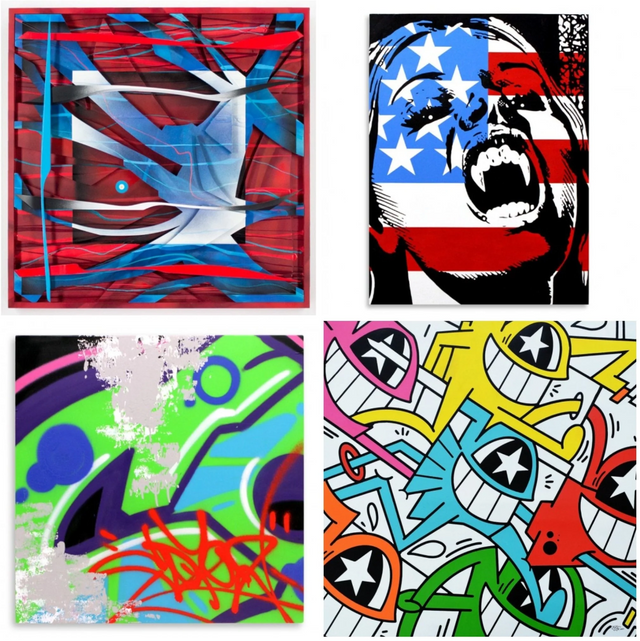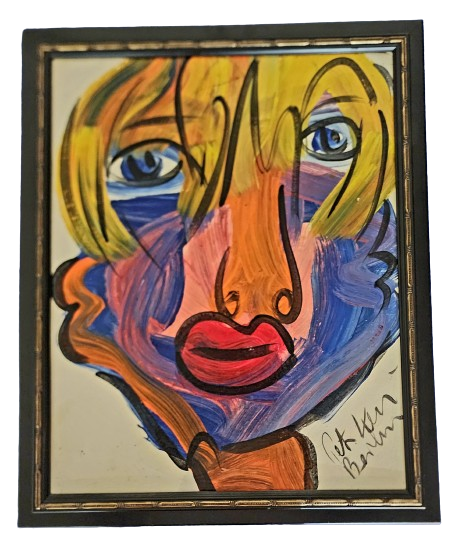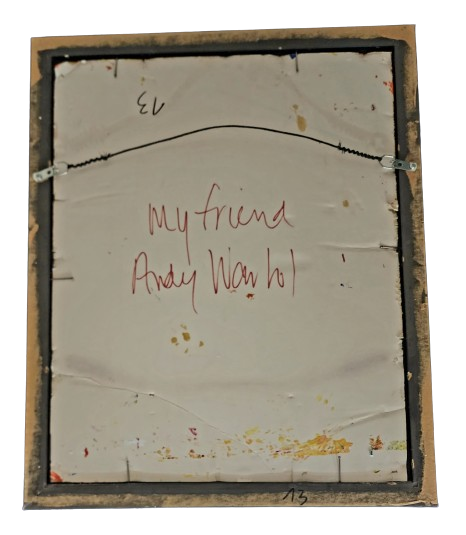
Painting Original Artwork


Peter Keil My Friend Andy Warhol 73 Original Oil Painting by Peter Keil
My friend Andy Warhol's 73 Original Oil Painting by Peter Keil is a one-of-a-kind artwork on framed foam board by The Wild Man of Berlin, a famous contemporary artist. 1973 Signed by Peter Keil, Titled & Dated Oil Painting on Foam Core Panel Vintage Framed Original Framed Artwork Size 18.25x22.5. All of Peter Keil's Art Used Thick Paint & Some Paint Flaking May Be Present Due to the Age and Nature of His Work—painting of Stylized Andy Warhol. Embracing the Vibrancy of Neo-Expressionism in Peter Keil's Portraiture "My Friend Andy Warhol 73," an original oil painting by Peter Keil, manifests the vibrant energy and bold coloration that are hallmarks of his distinctive artistry. Renowned as The Wild Man of Berlin, Peter Keil has etched his name in the annals of contemporary art with his dynamic approach to creation. This 1973 signed, titled, and dated masterpiece is a one-of-a-kind artwork on foam board, framed with precision to enhance its striking presence. The framed artwork, sized 18.25x22.5 inches, is a testament to Keil's enduring fascination with the iconic pop artist Andy Warhol, rendered in an unmistakably Keil's style. The painting is a stylistic nod to the street pop art and graffiti artwork movements, which Keil has both been influenced by and helped shape. His thick, impasto paint results in a textured, almost sculptural surface where the medium's physicality is as expressive as the subject. Using foam board, an unconventional canvas, signifies Keil's willingness to experiment with materials, reinforcing the painting's unique character. It's not uncommon to find some paint flaking in Keil's works; these are not flaws but rather historical whispers that speak of the artwork's journey through time. Peter Keil's Impact on the Evolution of Pop Art Peter Keil's oeuvre is a fusion of graffiti's raw spontaneity and pop art's calculated boldness. In "My Friend Andy Warhol 73," Keil pays homage to Warhol by capturing his likeness in an exaggerated and profoundly personal manner. The stylized portrayal is a dialogue between the two artists, bridging the gap between Warhol's commercial art background and Keil's expressionist roots. This piece serves as a narrative that extends beyond the visual, touching upon the profound relationship between the artists and the era they helped to define. Keil's contribution to the street pop art genre is reinforced by how he captures his subjects' spirit. His portraits are not mere representations; they are emotional landscapes, mapping the terrain of human complexity through the lens of his exuberant palette. The choice to depict Warhol, a leading figure in the pop art movement, through Keil's expressionist strokes is a celebration of art's ability to cross-pollinate, influence, and be reinvented. The collectability of Keil's work, especially pieces like "My Friend Andy Warhol 73," lies in their capacity to stand the test of time. Keil's art is cherished for its aesthetic appeal and its place within the continuum of art history. His paintings are coveted by collectors who seek to own a fragment of the enthusiasm and the freedom that Keil's paintings so vividly express. "My Friend Andy Warhol 73" is a vibrant example of Peter Keil's significant contributions to contemporary art. The painting is an invitation to explore the dynamic intersection of street pop art and graffiti with traditional portraiture and to appreciate the enduring power of an artist's touch. Through his work, Keil continues to captivate, challenge, and celebrate the boundless possibilities of paint and canvas.
$750.00



